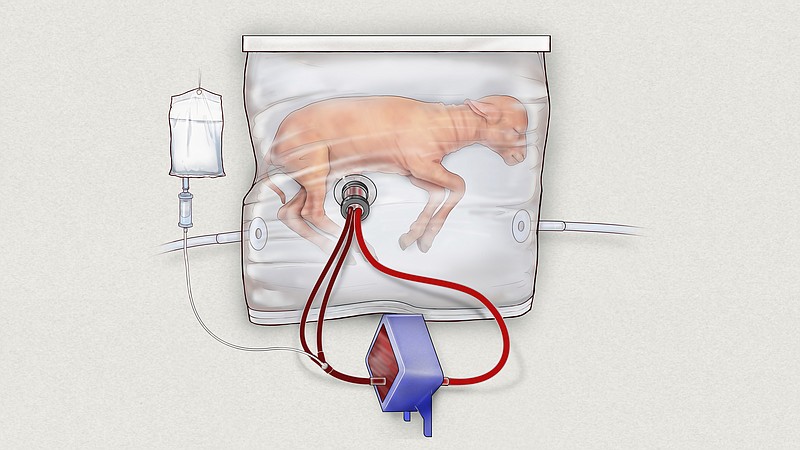WASHINGTON (AP) - Researchers are creating an artificial womb to improve care for extremely premature babies - and animal testing suggests the first-of-its-kind watery incubation so closely mimics mom that it just might work.
Children's Hospital of Philadelphia aims to give the tiniest preemies a few more weeks cocooned in a womb-like environment so their lungs have more time to develop. It's a gentler solution than today's standard incubators, where babies weighing as little as a pound are hooked to ventilators.
The researchers created a fluid-filled container simulating the amniotic fluid in mom's uterus, and attached a mechanical placenta that keeps blood oxygenated.
In first-stage testing, extremely premature lambs grew apparently normally inside the system for three to four weeks. Human testing still is several years away.
The study was in Nature Communications.
